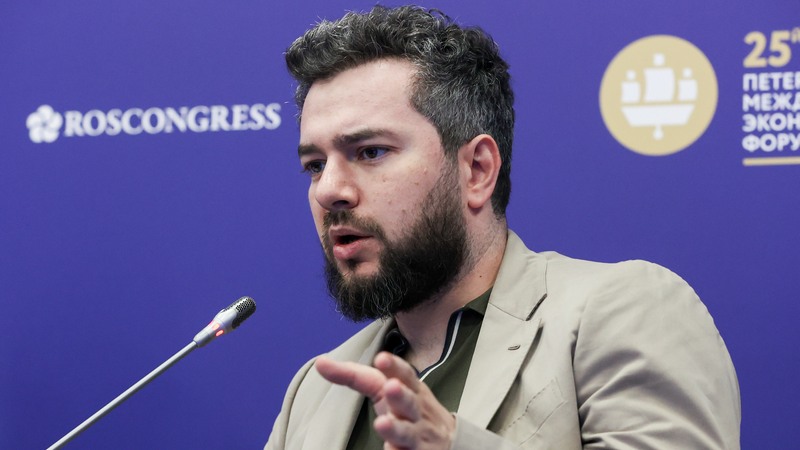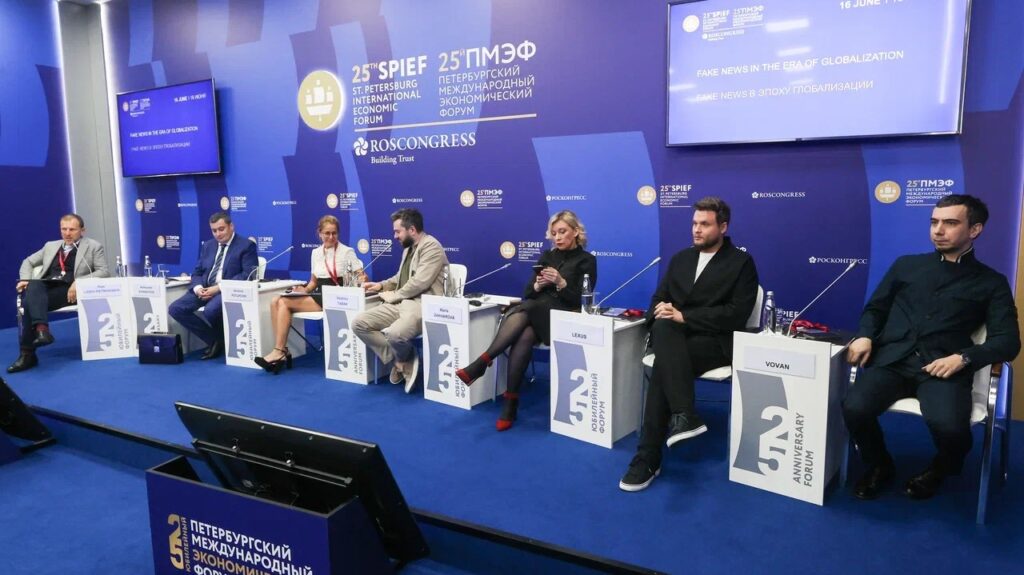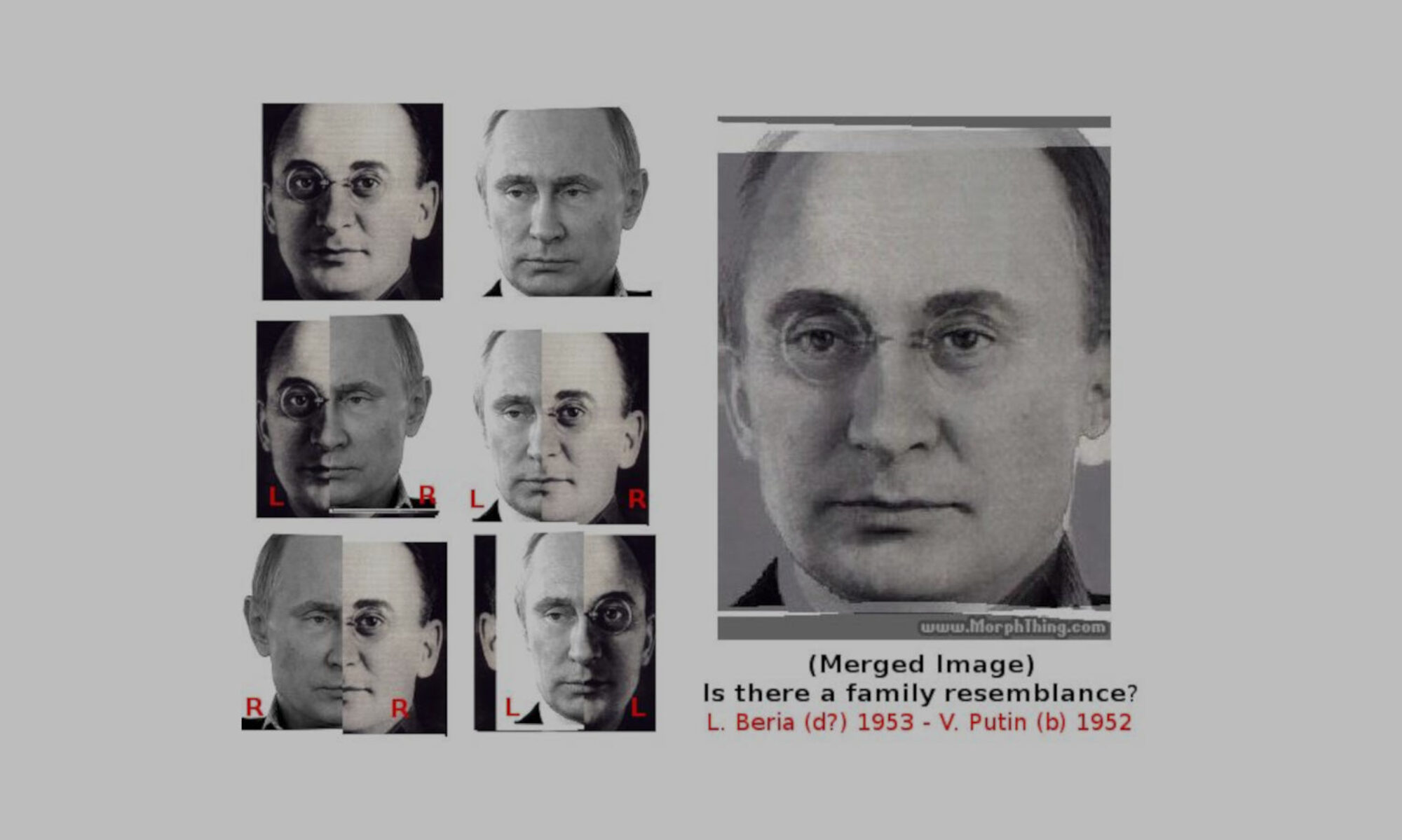At a Saint Petersburg International Economic Forum (SPIEF) panel held on June 21, 2022 called Fake News in the Era of Globalization, Russian businessman Vladimir Tabak introduced plans for a new social media fact-checking service called “Noodles” (Лапша) (1).

The name Noodles is a reference to the familiar Russian expression “to hang noodles on one’s ears”, which can be described as “to fool someone in a skillful manner, and make them naively believe what you’re saying.” (2)
Tabak’s Noodles service will include a website, a chat bot, and media monitoring capabilities. It will partner with various internet platforms in order to support the goals of the October 2021 Memorandum on Countering Misleading Information (aka ‘Memorandum on Combating Fake Fakes’) (1). The Memorandum was signed by representatives of many Russian state-owned news agencies. It represents an allegedly self-regulatory and voluntary information data standard for Russian media companies to support “systematic” efforts to “develop common rules for verifying and labeling false information, as well as developing best practices for verifying the authenticity of publications.” (3)
Some media reports on the Noodles announcement proclaimed that “the first anti-fake service will be launched in Russia.” (1 ,5)
An announcement of Noodles being the first such service in Russia might be met with some skepticism by Western observers. Researchers of Russian information warfare activities during the 2022 Ukraine War have already reported extensively about the popular Telegram channel War on Fakes, which purports to be a fact checking website, but seems to have been used instead by the Kremlin as a coordinated outlet for the spread of state-sponsored disinformation narratives (4).
Based on the discussions in the SPIEF panel and Tabak’s pro-Kremlin background alone, there is reason to expect that like War on Fakes, that Noodles will be likely to reinforce the ideological position of the state as a first priority in “truth”, rather than enable greater access to factual information by Russian social media users.
Legacy of Vladimir Tabak’s Controversial and Well-Connected 2011 Calendar
Before he was a digital media-focused executive, in 2010 Tabak had achieved notoriety as the publisher of the racy 2011 calendar Happy Birthday Mr. Putin! which featured scantily-clad female students and graduates of the Moscow State University journalism department.
At the time, controversy surrounded the calendar because it had been posted on the blog of the Nashi youth movement press secretary, Kristina Potupchik, and it was rumored that the calendar itself had something to do with Nashi – which Tabak denied (6).

The calendar was protested by more ethically-minded students and faculty, who specifically noted the Kremlin’s role in the murder of journalists like Anna Politkovskaya or suppression of dissidents like Mikhail Khodorkovsky (7).
Also notably – but perhaps a subject for a blog of its own – one of Tabak’s recruits for the calendar – Miss April, Alisa Karcheva (column 2 row 3) who would become a Miss Russia contestant as well as creator of the 2012 “Pussy for Putin” social media campaign – later became a rumored mistress of Vladimir Putin after it was revealed in 2016 that she had obtained a luxury apartment in one of Moscow’s most exclusive districts through connections of Putin associate Arkady Rotenberg (8, 9).
More Tabak Background
Aside from the denial of rumors he is connected to the Nashi movement, Vladimir Tabak has also been linked in multiple accounts to former Kremlin eminence grise Vladislav Surkov (who was the ideological architect of the Nashi movement, and of course a well-known political technologist in relation to the field of ‘nonlinear warfare’).
Notably, the Nashi movement was alleged to have been organized by Surkov in the early 2000s in order to ensure “domination of pro-Kremlin views on the internet” (10) .
While there isn’t much information available other than rumors Tabak has denied, it has been reported that Tabak’s father may be a direct associate of Surkov (9, 11). In addition, following the production of his calendar, it is known that Tabak worked in the presidential administration close to Surkov (12, 13).
Like Surkov, another individual whom Tabak’s name often appears close to, albeit much more openly is Alexey Goreslavsky. Both Goreslavsky and Tabak have held senior positions at ANO Dialog and the Kremlin’s Internet Development Institute (IRI) (14). (Goreslavsky was reported as a signatory to the Memorandum on Countering Misleading Information as well (3).)
Goreslavsky has previously been noted as close to the pro-Kremlin propaganda ecosystem; and when he controversially took over the news outlet Lenta, it became analogous to a state-sponsored news outlet (15 ). Goreslavsky’s instillation at Lenta seems to have been part of the Kremlin’s plan to crush independent media outlets following the 2014 invasion of Eastern Ukraine and the Crimea (10).
As a Kremlin-sponsored organization, ANO Dialog seems to primarily operate as a technocratic method for the public to interface with the authorities (13).
Much of Goreslavsky and Tabak’s work with ANO Dialog has been in relation to combating misinformation about the coronavirus pandemic, according to Tabak (14). In December 2021, it seems Tabak took over the ANO Dialog CEO role from Goreslavsky (16).
Conclusion
In February 2021, an ANO Dialog-sponsored panel on Clubhouse hosted by Vladimir Tabak called “Fakehouse: Who, How and Why Produces Fakes?” discussed disinformation on the social media platform. The panel included Ashot Gabrelyanov (son of Aram Gabrelyanov) and other figures close to the Kremlin propaganda ecosystem.
As a recent article on participatory media and the use of Clubhouse in Russia noted: “in a way, this was a relevant panel to discuss the manufacturing of fake news from a first-hand perspective of practitioners who actually create it. More seriously, it demonstrated the agility of the Russian authorities in colonizing the newest media and attempting to set the agenda there.” (12 )
Likewise similar to the recent War on Fakes project, it seems it would be wise to consider the forthcoming Noodles project as the latest and greatest way for the authorities to lay “noodles” and doublespeak on the credulous ears of the Russian people, all the while convincing them that they are savvy media consumers. The panel discussion seems to make it clear that the future of Noodles will follow this direction.

For one, we got a sense of the kinds of “fakes” in a globalization context which this panel was discussing. According to panelist Maria Zakharaova, Russian Foreign Ministry spokesperson – these include Ukrainian allegations of Russian atrocities and war crimes committed at Bucha (17).
Another major announcement related to ANO Dialog at the forum was that the organization (and presumably the Noodles platform) had signed an agreement with the Russian Ministry of Education in order to deliver media literacy instruction to schools (5).
Unbelievably, Tabak’s former controversial calendar collaborator and Nashi secretary Kristina Potupchik was also a panelist at this SPIEF discussion. Now, Potupchik is the president of the ironically named Open New Democracy Foundation.
Reports on her participation at the forum seem to indicate that she is a huge ideological proponent of blockchain in the context of its imagined ability to keep track of fakes in an information war context.
She is quoted as saying : “It will be possible to defeat fakes only with the help of blockchain technologies. In the future, history will be recorded on a blockchain “spiral” where you can’t change or fake anything.” (5 )
Given the obvious participation of Potupchik in the Nashi movement, and her prior involvement with Tabak in the calendar controversy which was rumored to be linked to Nashi – as well as Tabak’s rumored direct relationship to Vladislav Surkov – the focus of Dialog and Noodles on working with secondary school students to curate the internet of fakes which may be ideologically harmful to the regime – and presumably indoctrinate these children on blockchain technology as well in the process – seems suspiciously like a case of history rhyming in information warfare.
At the very least it is hard to ignore the rumors which connect Tabak to Surkov and Nashi, when we look at the patterns and figures around his anti-fake activities.
In the end, technological solutions to disinformation are intriguing, but Noodles looks instead like a technocratic tool of the Russian authoritarian information ecosystem with strong links to Vladislav Surkov’s ideology.
References
(1) “«В России запустят первый антифейк-сервис»” (“The first anti-fake service will be launched in Russia“), June 21 2022, https://znamyuzl.ru/news/v-rossii-zapustyat-pervyy-anti/
(2) Ivan Zavyalov, “5 Food Idioms Commonly Used In Modern Russian“, Italki, February 1 2016,
https://www.italki.com/article/659/5-food-idioms-commonly-used-in-modern-russian
(3) “«Подписание меморандума о противодействии фейкам»” (“Signing of a memorandum on counteracting fakes“), TASS, October 7 2021, https://tass.ru/press/14759
(4) Ingrid Dickinson, “Kremlin-linked accounts promote Telegram channel spreading disinformation under the guise of fact-checking“, Atlantic Council, April 8 2022, https://www.atlanticcouncil.org/blogs/new-atlanticist/russian-war-report-russia-makes-false-claims-while-blaming-ukraine-for-kramatorsk-railway-station-attack/
(5) “«Лапшу снимут с ушей: на ПМЭФ анонсировали запуск первого антифейк-сервиса»” (“Noodles will be removed from the ears: the launch of the first anti-fake service was announced at SPIEF“), Moskovsky Momsomolets Kostroma, June 21 2022, https://kostroma.mk.ru/economics/2022/06/20/lapshu-snimut-s-ushey-na-pmef-anonsirovali-zapusk-pervogo-antifeykservisa.html
(6)”«Авторы календаря для Путина отрицают связь с “Нашими”»” (“The authors of the calendar for Putin deny connection with Nashi“), BBC Russia, October 6 2010, https://www.bbc.com/russian/russia/2010/10/101005_putin_erotic_calendar
(7) Steve Gutterman, “Provocative Putin calendar provokes retort” , Reuters, October 7 2010, https://www.reuters.com/article/us-russia-putin-calendar-idUSTRE6962X520101007
(8)”Russia: Businessman Handles Insider Homes” , Organized Crime and Corruption Reporting Project (OCCRP), March 31 2016, https://www.occrp.org/en/investigations/5106-russia-businessman-handles-insider-homes
(9) Anna Arutunyan, The Putin Mystique: Inside Russia’s Power Cult, 2014, Skyscraper Publications, UK
(10) Oscar Jonsson, “Russian information warfare and its challenges to international law“, in Routledge Handbook of War, Law and Technology, 2019, https://www.taylorfrancis.com/chapters/edit/10.4324/9781315111759-26/russian-information-warfare-challenges-international-law-oscar-jonsson
(11) Svetlana Romanova, “««Да где вы все видите в нашем календаре политику? Ее там нет!»»” (“Yes, where do you all see politics in our calendar? She is not there!“), Slon, October 7 2010, https://web.archive.org/web/20120314170322/http://slon.ru/russia/da_gde_vy_vse_vidite_v_nashem_kalendare_politiku-475994.xhtml
(12) Katerina Boyko and Roman Horbyk, “A Medium Is Born: Participatory Media and the Rise of Clubhouse in Russia and Ukraine During the Covid-19 Pandemic“, 2022, Baltic Screen Media Review, Volume 10; https://sciendo.com/article/10.2478/bsmr-2022-0003
(13) Ksenia Ginzburg, “«Фабрика нетроллей, или Как чиновников отправили следить за общественным мнением горожан»” (“Netroll factory, or how officials were sent to monitor the public opinion of the townspeople“), Fontanka, November 27 2020, https://www.fontanka.ru/2020/11/27/69580113/
(14) Farida Rustamova and Andrey Pertsev, “«Информированием граждан о коронавирусе займутся бывший кремлевский куратор интернета Алексей Гореславский и продюсер календаря для Путина Владимир Табак»” (“Alexey Goreslavsky, former Kremlin curator of the Internet, and Vladimir Tabak, producer of a calendar for Putin, will inform citizens about the coronavirus“), Meduza, March 17 2020, https://meduza.io/feature/2020/03/17/informirovaniem-grazhdan-o-koronaviruse-zaymutsya-byvshiy-kremlevskiy-kurator-interneta-i-prodyuser-kalendarya-dlya-putina
(15) Rolf Fredheim, “The Loyal Editor Effect: Russian Online Journalism after Independence“, 2016, Post-Soviet Affairs, Volume 33, 2017, https://www.tandfonline.com/doi/abs/10.1080/1060586X.2016.1200797
(16)Varvara Koshechkina, “«Владимир Табак возглавил АНО «Диалог»»” (“Vladimir Tabak headed ANO Dialog“), Lenta, December 1, 2021, https://lenta.ru/news/2021/12/01/tabak/
(17)Alena Zhuravleva, “«В инфовойне побеждает не тот, кто прав, а тот, кто стреляет первым»” (“In the information war, it is not the one who is right who wins, but the one who shoots first“), Mskit.ru, http://mskit.ru/news/n228534/
